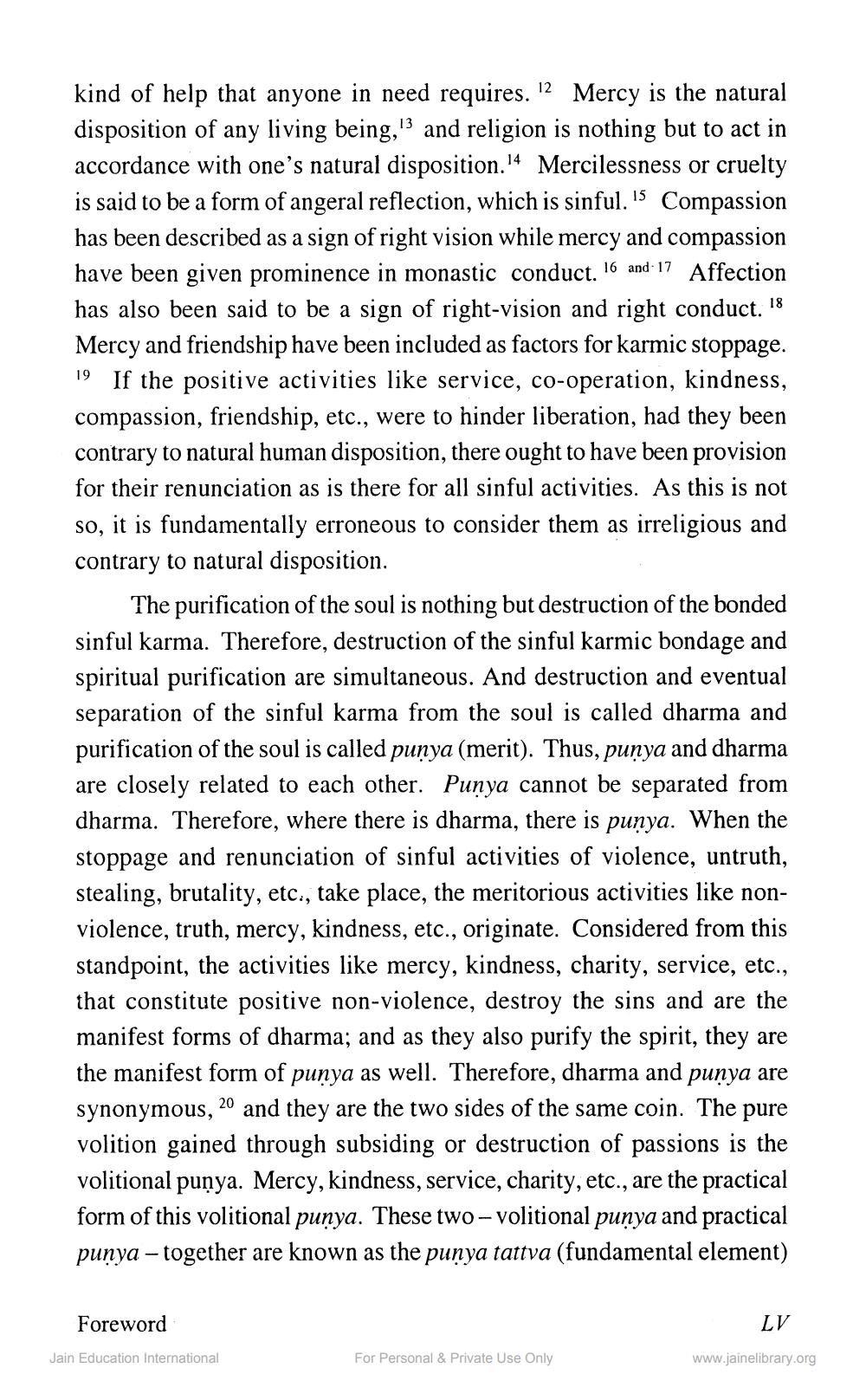________________
kind of help that anyone in need requires. 12 Mercy is the natural disposition of any living being,'3 and religion is nothing but to act in accordance with one's natural disposition.!4 Mercilessness or cruelty is said to be a form of angeral reflection, which is sinful.'s Compassion has been described as a sign of right vision while mercy and compassion have been given prominence in monastic conduct. 16 and 17 Affection has also been said to be a sign of right-vision and right conduct. 18 Mercy and friendship have been included as factors for karmic stoppage. 19 If the positive activities like service, co-operation, kindness, compassion, friendship, etc., were to hinder liberation, had they been contrary to natural human disposition, there ought to have been provision for their renunciation as is there for all sinful activities. As this is not so, it is fundamentally erroneous to consider them as irreligious and contrary to natural disposition.
The purification of the soul is nothing but destruction of the bonded sinful karma. Therefore, destruction of the sinful karmic bondage and spiritual purification are simultaneous. And destruction and eventual separation of the sinful karma from the soul is called dharma and purification of the soul is called punya (merit). Thus, punya and dharma are closely related to each other. Punya cannot be separated from dharma. Therefore, where there is dharma, there is punya. When the stoppage and renunciation of sinful activities of violence, untruth, stealing, brutality, etc., take place, the meritorious activities like nonviolence, truth, mercy, kindness, etc., originate. Considered from this standpoint, the activities like mercy, kindness, charity, service, etc., that constitute positive non-violence, destroy the sins and are the manifest forms of dharma; and as they also purify the spirit, they are the manifest form of punya as well. Therefore, dharma and punya are synonymous, 20 and they are the two sides of the same coin. The pure volition gained through subsiding or destruction of passions is the volitional punya. Mercy, kindness, service, charity, etc., are the practical form of this volitional punya. These two - volitional punya and practical punya - together are known as the punya tattva (fundamental element)
LV
Foreword Jain Education International
For Personal & Private Use Only
www.jainelibrary.org




